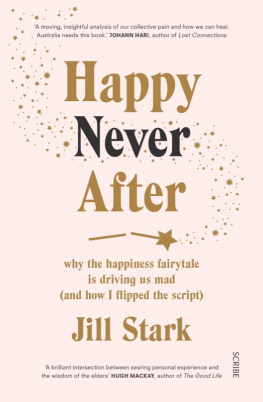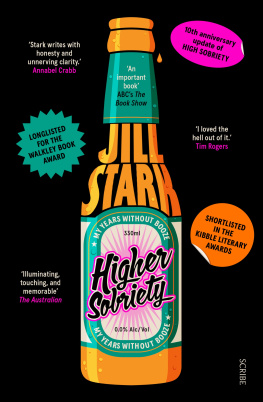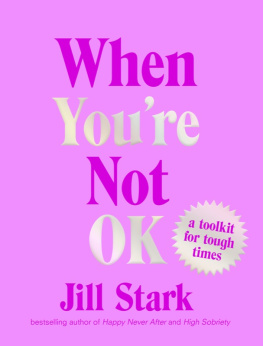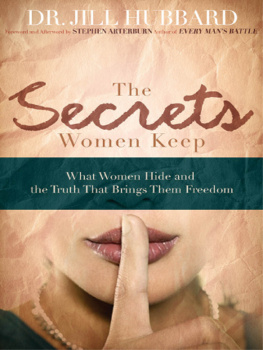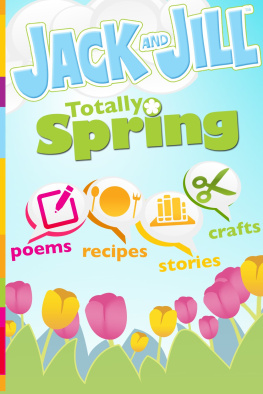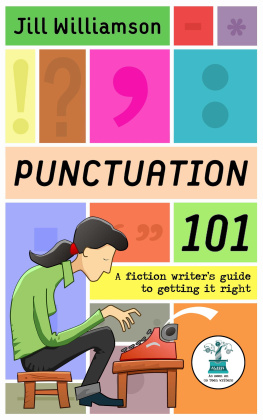
HAPPY NEVER AFTER
Jill Stark is an award-winning journalist and author with a career spanning two decades in both the UK and Australian media. She spent ten years on staff at The Age covering health and social affairs as a senior writer and columnist, and now works as a freelance journalist, media consultant, and speechwriter. Her first book, High Sobriety , was longlisted for the Walkley Book Award and shortlisted in the Kibble Literary Awards.
Scribe Publications
18-20 Edward St, Brunswick, Victoria 3056, Australia
2 John St, Clerkenwell, London, WC1N 2ES, United Kingdom
3754 Pleasant Ave, Suite 100, Minneapolis, Minnesota 55409 USA
First published by Scribe 2018
Copyright Jill Stark 2018
All rights reserved. Without limiting the rights under copyright reserved above, no part of this publication may be reproduced, stored in or introduced into a retrieval system, or transmitted, in any form or by any means (electronic, mechanical, photocopying, recording or otherwise) without the prior written permission of the publishers of this book.
9781925713107 (Australian edition)
9781911617587 (UK edition)
9781925693225 (e-book)
CiP records for this title are available from the National Library of Australia and the British Library.
scribepublications.com.au
scribepublications.co.uk
scribepublications.com
For Chris, Jason, and Nonie, who brought me back to life
CONTENTS
THE NEVERENDING STORY
FLIPPING THE SCRIPT
AUTHORS NOTE
When I was a kid, outspoken and chatty, Dad would proudly tell people that his daughter knew her own mind. But I didnt really I had no clue. It was only when it started to malfunction that I came to know it intimately. And even now, after a spectacular breakdown that nearly killed me, my mind is still revealing its secrets. Every day a new subplot emerges; there are more twists and turns than a daytime soap.
The experiences of the last few years have taught me a lot. They have shaken up my perception of happiness and given me a greater insight into the universal struggles we all face. The journey has helped me identify the things I can do to make life easier, and the things that make it more challenging.
But our brains are wonderfully complex and unique. The myriad forms of emotional distress we experience cant be shoehorned into one homogenised story. What works for me may not be right for someone else. So this is not meant to be a prescriptive guide. Im not a doctor, a counsellor, or a psychologist. Im not a spiritual guru or a happiness expert. Im just a person who lived through some tough times and learned a few things along the way. Those lessons form the backbone of this book. Whether our stress is a minor irritant or a clinical disorder, the key to understanding it comes from figuring out what lies beneath.
My hope is that my story will resonate with anyone who has chased their happy-ever-after and found it lacking. Its for anyone who knows what it feels like to struggle, even if their life, on paper, is perfect. Its for every person who feels abnormal or worries that their troubles define them. Its a book for people who wonder why theyre stuck in the same old unhealthy patterns and want to change. Its for anyone who feels strung out by a hectic modern world and all its challenges, or worries about the pressures on the kids in their lives. Its a book for those who want to change the script.
The events described move around in time but largely occurred over a period of years directly preceding or following an emotional firestorm that came to a head in October 2014. Some chapters contain edited extracts of articles that first appeared in The Age , The Sunday Age , or SBS Life .
While I believe my story is ultimately one of hope, it also documents some dark and difficult times. This content may bring up issues for some readers. If you need help, turn to the back of the book for further information. You dont have to go it alone.
The
Neverending
Story
FALLING APART
It was a chat with a philosopher that finally tipped me over the edge. He was sharing his wisdom on the power of solitude. Its the capacity to confront and accept your own existence without needing others around to entertain or distract you, he said cheerfully, as I gripped the phone, my knuckles whitening.
Suddenly, that familiar sense of dread engulfed me. He was still talking, but I was no longer listening. The only sound I could hear was the thundering of blood rushing to my head. My heart hammered. I was trapped on this phone call with a modern-day Socrates, schooling me on human complication and the calm that comes from truly knowing yourself, and I was being buried by an avalanche of panic. My mind raced in time with the pulsing in my chest as I applied his words to my life . Im not calm. I dont know myself at all. What the fuck is wrong with me?
The anxiety only intensified with every catastrophic thought. It was a death roll, and I felt powerless to stop it.
My brain tried to save me by faking a coughing fit. I hung up the phone mid-sentence. And then I was on the newsroom floor, gasping for breath like a freshly caught fish flip-flopping on the deck of a boat.
My friend and colleague Chris stood up from the desk opposite mine. Jesus, Starkers, you alright?
I cant breathe.
Dying felt like a certainty. In these moments it often feels as if that would be a better option than living through another minute. Its like a scene from a horror movie where the petrified girl is running down a darkened corridor in her nightgown. Except the predator is my own mind. I tried to breathe deeply, in and out, in and out. Science tells us that its impossible to panic if you practise diaphragmatic breathing: the body and mind are so interconnected that breathing deeply has an automatic calming effect. But thats not always easy to believe when it feels like insanity or cardiac arrest are real possibilities. Electric shocks surged from the tips of my toes to the crown of my skull. I was petrified. I wanted to slam my head against the wall just to make it stop.
It was Saturday, the quietest day of the week. My bosses at the news desk couldnt see my meltdown from where they sat. Only Chris bore witness. Hed never seen this side of me. I didnt dare look at him for fear of what I would see written on his face. Anxiety had been with me since I was child, but few people knew the extent of my history. It had been years since Id experienced anything like this. And never at work.
I lay on the floor in childs pose, face down, knees tucked beneath my chest, arms by my sides, willing myself to keep breathing. I couldnt stay here. I stood up, my hands trembling as I inhaled and exhaled. Slow, deep breaths. I picked up the phone and redialled the philosophers number. Hi, Damon. Sorry about that. Ive got a really bad cough at the moment. Just had to get some water.
I finished the interview. The piece I wrote about the lost art of solitude ended up as a front-page story the following Sunday. The headline read Why Being Alone Means Keeping Good Company. The image underneath was of a pigtailed girl in a flannel shirt, jeans, and hiking boots sitting cross-legged on a rock in a darkened forest, her face illuminated by the tablet in her hands. Take away the digital device and she looked like a 15-year-old me.
This story would be the last one I wrote for almost five months. It was October 2014, and I had reached my lifes peak. But I had fallen apart.
In February the previous year, my first book, High Sobriety a memoir about my tumultuous twelve months off the booze, set against a backdrop of Australias binge-drinking culture had been published. It soon became a bestseller and was even shortlisted for literary awards.
Next page
